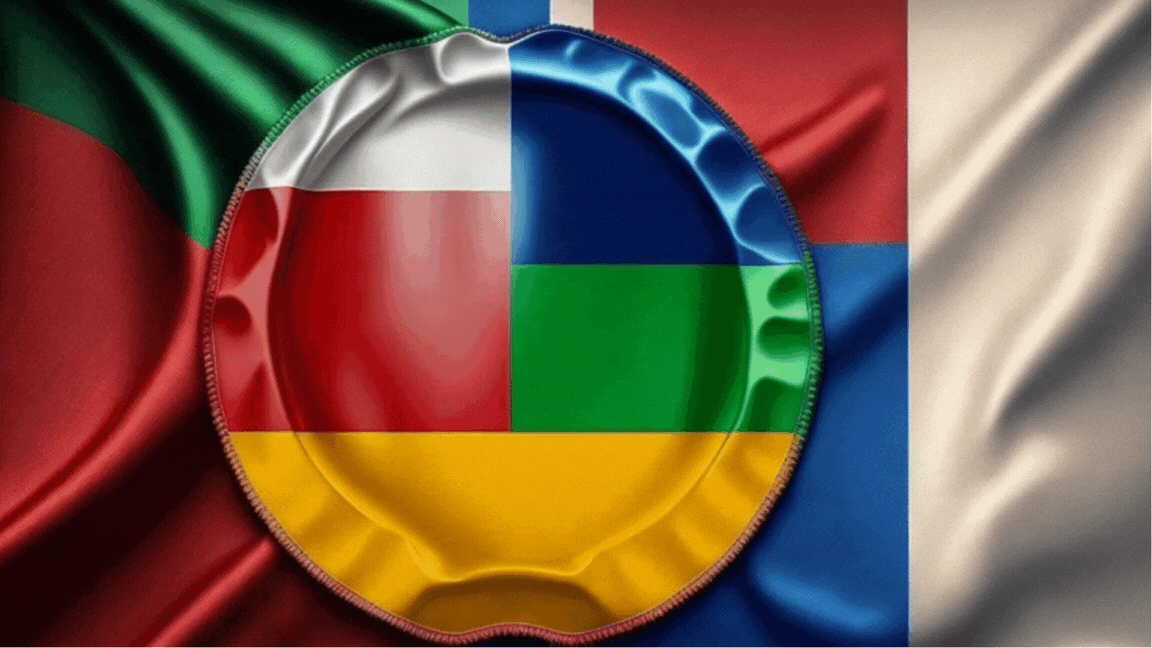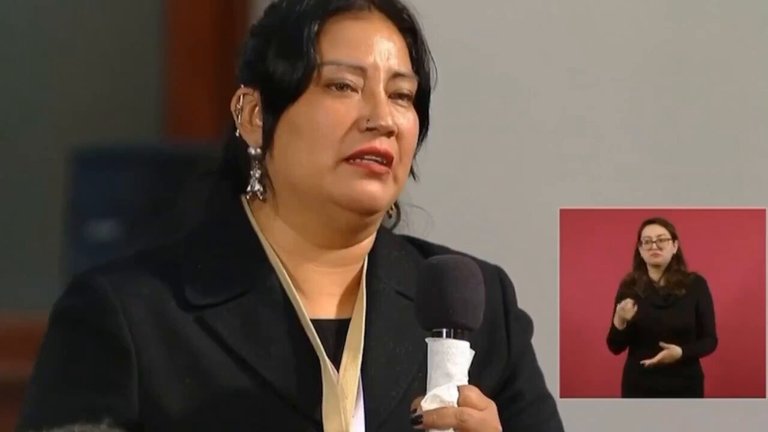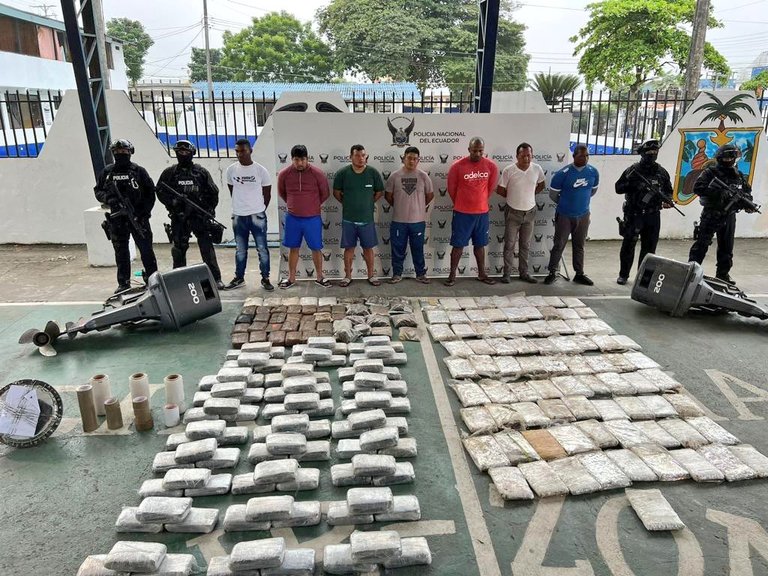
War journalism
Today, while watching the morning press conference regularly given by Mexican President Andrés Manuel López Obrador, I felt somewhat guilty. María Luisa Estrada, a journalist from the state of Jalisco, took up practically an hour and a half of the space on certainly critical topics. I apologize if at this time my reports have perhaps revolved too much around México and Ecuador, but both are certainly going through extraordinary situations within the state of crisis that characterizes the region, with insecurity as a common denominator. Estrada is an extremely courageous professional, who is dedicated to investigative journalism on issues such as insecurity and corruption, two that carry a very high risk to her life, considering the record of the Aztec nation in this regard. In her first question, she inquired about the problem of the missing persons in Jalisco, where hundreds of remains have not been identified, with a service that is overwhelmed in its capacity, although she also denounced inaction.
During his response, AMLO again called for calm and patience, but it is hard to say that to any mother who one day saw her son leave, never to see him again. He also insisted that opposition magnify the problem of violence, this time talking about the case of a massacre that occurred in a remote community in the state of Guerrero last Thursday, which we have followed in our last two reports. López Obrador defended the narrative of the Guerrero State Attorney General's Office that there were only five dead that day in Buenavista de los Hurtado, as a result of an attack allegedly perpetrated by the "Familia Michoacana" criminal organization. But the point is that AMLO seems to win the political game by demonstrating that there were five people massacred and subsequently decapitated and incinerated, and not potentially thirty as first suggested. The manipulation that moves to defeat officialism is great, but that unfair covering does not erase the facts. Every crime matters, but the president focuses on the information war.
 Maria Luisa Estrada yesterday (source).
Maria Luisa Estrada yesterday (source).Threatened
Then the journalist told how she experienced first-hand last year an assassination attempt or at least one to intimidate her when she was traveling in a van with her underage daughter. From then on, she experienced the neglect of federal and state authorities, and even direct attacks by them in apparent collusion with criminal groups. "The only thing I want is for this persecution to stop. I don't want to point fingers at anyone, because I am not reckless. I have not brought out information that is not known. It is public knowledge the disappearances in Jalisco, the clandestine graves, the repression that exists," she said, going on to list all the homicide cases that have gone unpunished. She also denounced corruption in an ineffective mechanism provided to protect journalists and human rights activists—she demonstrated it live—pointing directly to certain officials. From AMLO, I expected more identification with Estrada, and a clear demand to investigate her disturbing allegations. But why did this brave woman make me feel guilty, as I said above? While I think that I add value to the blockchain with what I do here—presenting her case today, for example—, my life is not at risk like hers, and I do not know if, in a situation like that described, I would be able to comment—even from far away—on corruption and crimes.
Strike against drug trafficking
After a year of monitoring, Colombian and Ecuadorian authorities succeeded in breaking up an organization that was sending some five tons of cocaine per month to the United States and the "old continent". The brothers Háder and Dairon Cuero, circulated by Interpol and with an arrest warrant issued from Florida, were apprehended in Colombia as part of a joint operation called "Gran Fénix 03". The Cuero brothers had fled to Colombia from Ecuador and were the leaders of the "Los Curva" organization. Throughout last year, six Colombian nationals and some twenty Ecuadorians were captured in Ecuador, and nearly 3 tons of cocaine were seized. I find it interesting that the volume seized is less than the volume sent in a month, although we do not know if certain coordination in the United States, Mexico, or Europe made it possible to intercept some of the drugs there without compromising the operation. It is very important to note the allegation that the two active factions of the extinct FARC-EP monitored the cocaine production in Colombia of "Los Curva". Police in Bogota estimate that the profits of the organization—in alliance with the Sinaloa cartel in Mexico and the Balkan cartel in Europe—were in the order of US$2 billion.
 Apprehended and drugs seized in Ecuador as part of the operation (source).
Apprehended and drugs seized in Ecuador as part of the operation (source).The quick regional roundup
Ecuador is once again in a state of emergency (it is not clear to me when it left the one decreed by Guillermo Lasso) following the escape of Adolfo Macias, alias "Fito"—leader of one the most powerful criminal gangs in the country—from a prison located in the failed state of Guayas. This new breakdown of the Ecuadorian penitentiary system somehow spurred the inmates of some six prisons, who held several penitentiary agents and advanced other actions, generating a new wave of chaos, contributing to this extreme decision taken by President Daniel Noboa, who approved the deployment of the military in the streets and prisons, and also orders a curfew between 23H00 and 05H00 local time. Some 3,000 police and military personnel are participating in the hunt for Fito, who is considered to be highly dangerous. Noboa's credibility as a leader is at stake here, managing an insecurity crisis that yesterday also claimed the life of Jair Lemos, a young soccer player murdered while at a wake in the coastal city of Guayaquil, capital, oh coincidentally, of Guayas.
More than 1,000 migrants who formed the caravan known as "Exodus of Poverty" gathered to restart their effort to reach the border with the United States, denouncing that the immigration authorities in Mexico deceived them. Recall that this group left on December 24. Still, at one point, migrants reached an agreement that they would receive official documentation to move through the Aztec nation, which the Mexican National Migration Institute would not have honored. "We are not criminals! We are international workers!" they shouted from Chiapas yesterday. "(Authorities) defaulted, they left them in some shelters (...) they separated families and caused serious problems," said an activist who has accompanied the group from the beginning. "Migration lied to us, (...) they just wanted to undo the group, but they were wrong because we are all here and we are going to walk," declared a Salvadoran migrant.
And this is all for our report today. I have referenced the sources dynamically in the text, and remember you can learn how and where to follow the LATAM trail news by reading my work here. Have a nice day.


Posted Using InLeo Alpha